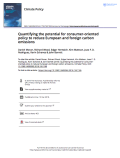
This report looks at a broad range of policies that could have potential direct and supply chain impacts on the level of greenhouse gas emissions produced at a national level.
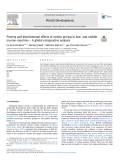
This study assesses the expected incidence of moderate carbon price increases for different income groups in 87 mostly low- and middle-income countries.
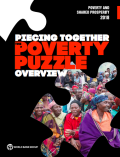
This report broadens the ways for defining and measuring poverty. It introduces a multi-dimensional poverty measure that is anchored on household consumption and the international poverty line of $1.90 per person per day, but broadens the measure by including information on access to education and basic infrastructure. In addition, in a sample of six countries, the multidimensional approach was extended to include two more dimensions—on health and nutrition and on security from crime and natural disaster.
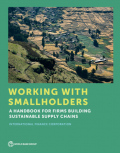
The handbook is a practical guide for firms who wish to expand their supply chains by working with smallholder farmers. The purpose is to enable more productive interactions between private firms and smallholders, creating value in all parts of the chain. It covers a broad range of topics including farmer aggregation, training and communication strategies, standards and certification, access to inputs, farm management, the role of women in supply chains, and measuring results. It also provides a framework for decision making and recommends tools and resources for firms engaging with smallholder farmers.
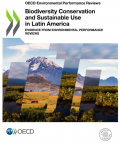
This report summarises key findings and lessons learned in the area of biodiversity conservation and sustainable use from the OECD Environmental Performance Reviews conducted for five Latin American countries between 2013 and 2017: Brazil, Chile, Colombia, Mexico, and Peru.
